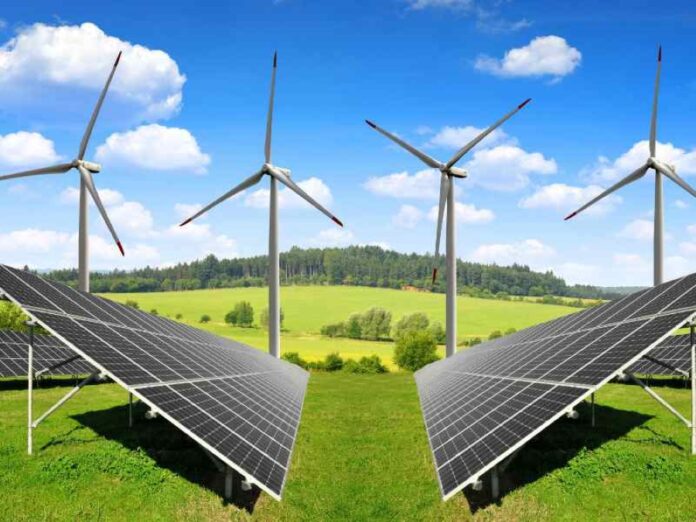The global energy landscape is undergoing a transformative shift, transitioning from fossil fuel dominance to renewable energy sources. This evolution reshapes economies, societies, and the environment, presenting an unparalleled opportunity to drive sustainable development and promote good governance. However, this transition demands critical reflection and strategic action to harmonize the intricate interplay between energy systems, economic growth, and environmental sustainability.
The Energy-Economy-Environment Nexus
Energy systems serve as the lifeblood of modern economies, fueling industrialization, creating jobs, and improving livelihoods. Yet, this development often comes at the cost of environmental degradation. Balancing these competing priorities—economic growth, energy access, and environmental sustainability—requires robust governance frameworks characterized by transparency, accountability, and strategic foresight.
In Africa, energy access is particularly critical. The continent’s energy poverty is a significant impediment to achieving its development potential. According to the World Bank’s 2022 Energy Access Report, Nigeria alone has one of the largest energy deficits globally, with 85 million individuals lacking access to the national power grid. This scenario reflects a broader challenge across sub-Saharan Africa, where over 600 million people live without electricity and 900 million rely on traditional biomass fuels like wood and charcoal for cooking. These unsustainable practices exacerbate deforestation and indoor air pollution, leading to severe health and environmental consequences, including an estimated 600,000 premature deaths annually (WHO, 2022).
Energy poverty impacts economic growth, education, healthcare, and gender equity, perpetuating inequality and hindering progress. Without access to affordable and reliable energy, the continent cannot achieve its industrialization and innovation goals. This underscores the urgent need for inclusive policies and investments to address energy poverty while fostering economic growth and environmental preservation.
Insights from Research: Understanding the Nexus
The relationship between energy consumption, economic growth, and environmental sustainability is multifaceted. Academic hypotheses such as the growth hypothesis, conservation hypothesis, and feedback hypothesis illustrate these dynamics. While some studies highlight that economic growth drives energy consumption, others suggest a two-way causality where energy systems and economic activities influence each other. Research specific to Africa reveals that energy consumption promotes short-term economic growth but often leads to increased carbon emissions, raising critical questions about policy priorities. Should the focus be on economic growth, or should policies prioritize reducing the carbon footprint of energy production?
Governance and Corruption: The Role of Leadership
Effective governance is the cornerstone of managing the energy-economy-environment nexus. Corruption undermines energy policies, reduces efficiency, and impedes the adoption of renewable energy. Empirical studies reveal that countries with lower corruption levels achieve better energy efficiency and policy implementation. In Africa, the lack of institutional capacity and governance challenges exacerbates energy poverty and environmental degradation. For instance, Nigeria, Africa’s largest economy, relies heavily on inefficient backup generators due to inadequate grid power, contributing to significant carbon emissions and deforestation.
Climate Change: A Global Responsibility with Local Impacts
Despite contributing only 3–4% of global greenhouse gas emissions, Africa bears the brunt of climate change’s adverse effects, including rising sea levels, droughts, and extreme weather conditions. These phenomena threaten livelihoods, reduce agricultural output, and exacerbate health and nutrition challenges across the continent. Climate change also undermines hydropower systems, further complicating energy access. Addressing these challenges requires a holistic approach, where Africa leverages its abundant natural resources to balance development needs and environmental sustainability.
The Promise of Renewable Energy
Renewable energy offers a transformative solution. Africa’s vast solar, wind, and hydropower potential could meet the continent’s growing energy demand sustainably. According to the International Renewable Energy Agency (IRENA), 76% of Africa’s energy could come from renewable sources by 2040. However, achieving this potential requires significant investment in infrastructure, innovation, and research. Currently, sub-Saharan Africa receives less than 1.5% of global renewable energy investments, highlighting the need for equitable financing mechanisms and international collaboration.
The Path Forward: Good Governance and International Cooperation
Good governance is essential for driving the energy transition. African governments must develop comprehensive energy transition plans that integrate economic growth, environmental sustainability, and social equity. Public-private partnerships, innovative financing, and technology transfer can accelerate the adoption of renewable energy. International cooperation is critical to bridging the financing gap, particularly in countries like Nigeria, where achieving net-zero emissions by 2060 will require an estimated $1.9 trillion with $410 billion above usual expenditures.
Transparency, accountability, and community engagement must underpin governance frameworks to ensure policies are inclusive and effective. By fostering trust and collaboration among stakeholders, governments can create an enabling environment for sustainable energy development.
Conclusion: A Collective Responsibility
The energy transition is not merely a technological shift but a socio-economic imperative. It offers a pathway to prosperity, resilience, and sustainability, especially for Africa, which stands at the crossroads of opportunity and challenge. By embracing renewable energy, fostering good governance, and strengthening international partnerships, Africa can secure a sustainable future for its people while contributing meaningfully to global climate action.
What we do today will define the legacy we leave for future generations. Let us consume better, innovate boldly, and govern responsibly to build a world where energy drives progress without compromising the planet. Sustainable development is not a distant ideal but an achievable goal if we act decisively and inclusively.
















 The African Research (AR) Index is a comprehensive scholarly directory and database focused explicitly on journal publishers that publish and disseminate African research.
The African Research (AR) Index is a comprehensive scholarly directory and database focused explicitly on journal publishers that publish and disseminate African research.

